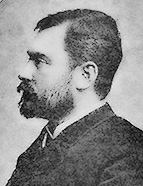

It is clear that Martins's political actions were not always aligned with the critical reading he constructed of Portugal’s past. Thus, a superficial reading of História de Portugal [History of Portugal] and Portugal Contemporâneo [Contemporary Portugal] could provide simplistic arguments for attacking constitutional monarchy, particularly the Bragança dynasty and liberal parliamentarianism. Indeed, both republicans and, later, the Integralistas Lusitanos [Lusitanian Integralists] exploited these works for such purposes—the latter rejecting, however, the melancholic, sceptical tone and vague sense of despair about the future that pervades Portugal Contemporâneo . Yet the complexity of his works resists such immediate interpretations driven by political agendas.
Disillusioned with Portuguese political life, Martins spent much of 1891 in England. This stay produced a critical perspective on English society in A Inglaterra Hoje [England Today] (1891). He also deepened a project he had initiated in 1889 with Os Filhos de D. João I [The Children of D. João I], a series of historical biographies of great figures from Portugal’s past, focusing on the Avis dynasty. This was another way for Martins to intervene in a present he viewed with profound scepticism while evoking a past when the nation was led by a small, enlightened elite whose actions had universal significance. Oliveira Martins’s intellectual trajectory can be summarised in the following phases:
1.1867–1878: In this period, Martins debuted in multiple genres (historical novels, dramas, chronicles, and literary, artistic, social, and political criticism). This was a syncretic phase of experimentation with ideas and initial forays into intellectual journalism. Across these genres, he invoked history, producing essays on historical themes (1872 and 1878), social and political critiques, doctrinal texts, and reflections on socialism (1872–73). His chronicles addressed diverse contemporary issues ( Ocidental , 1875). This period saw his intellectual focus expand and centre around three major areas: history, social and political thought, and financial studies. Initially heavily influenced by Proudhon and Hegel, he transitioned from an advocate of a social and federalist republic to a sharp critic of republicanism (1873–74) and a theorist of socialismo catedrático .
This work is financed by national funds through FCT - Foundation for Science and Technology, I.P, in the scope of the projects UIDB/04311/2020 and UIDP/04311/2020.
